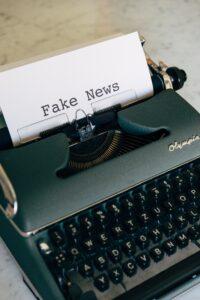Libya’s rocky road to reconciliation with Europe
Spectacular diplomatic coups have been flying out of Tripoli in recent months, leading some to call it Muammar Gaddafi's own ‘perestroika'.
Libya has officially abandoned its programmes to develop biological and chemical weapons, and has agreed to pay hundreds of millions of euros in compensation for the bombing of two airliners.
In return, European leaders have been lining up to offer the Libyan leader golden handshakes. At the end of April, Muammar Gaddafi landed in Brussels for his first visit to Europe in 15 years. “The red carpet rolled out for Gaddafi shows how much importance the EU attaches to Libya,” explains Noureddine Fridhi, a political advisor at MEDEA, a Brussels-based think-tank.
The Brussels visit marked a major watershed on Libya's path back into the international fold. Since a decade-old UN embargo was officially lifted in 1999, Libya has worked hard to restore frozen economic and political ties.
But the largely positive ‘buzz' surrounding Gaddafi gave way to disquiet last week as a Libyan court sentenced to death five Bulgarian nurses and one Palestinian doctor accused of masterminding the deliberate infection of more than 400 Libyan children – 40 of whom have died – with HIV. According to Luc Montagnier, the French doctor who discovered the virus, the Benghazi epidemic emerged in 1997, a year before the condemned arrived in the country.
The verdict given on 6 May drew an unequivocal response from Brussels: “This is a setback for EU-Libya ties,” Diego de Ojeda, the European Commission's spokesman for external relations, told me. “The resolution of this issue is a prerequisite before Libya can move forward in normalising relations with the EU.”
The condemned medics are among the list of outstanding issues – which include compensation for the bombing of a Berlin discotheque – the EU wishes to resolve before friendly ties can be fully restored.
Analysts expect Gaddafi to deliver on the promise he made in Brussels to bring his “moral power” to bear on the case. “Gaddafi can ask for the Bulgarians to be pardoned and I imagine he will do so to improve relations with Europe,” notes Fridhi. “He then has no choice but to resolve issues with the Germans.”
Along with Syria, Libya is the missing link in the EU's ambition to forge a Euro-Mediterranean (Euro-Med) free-trade area by 2012. Through the so-called Barcelona Process, which began in 1995, the Union has negotiated association agreements with 11 of its Mediterranean neighbours. “For [Commission President Romano] Prodi, Libya was a gaping hole in his Euro-Med ambitions,” explains Fridhi.
However, Libya's smooth passage could be held up by its poor human rights record. While noting some improvements during a recent visit, Amnesty International found that systematic abuses still occur. However, a willingness to ignore abuses carried out by friendly regimes, the Israeli-Palestinian conflict and the Anglo-American occupation of Iraq have made many Arabs view talk of ‘human rights' by Western governments as little more than a ‘rite of passage' to markets or resources.
Nevertheless, Fridhi believes that the EU-Med partnership can help improve the democratic climate in the Middle East, albeit indirectly. “It's not Europe's responsibility to establish democracies in the Arab world – that is the Arab peoples' responsibility…but the EU should not turn a blind eye to abuses.”
The EU can use its economic and political clout to force the pace of reform by offering carrots instead of sticks – as sanctions tend to hurt the people and not the leaders – and by maintaining a consistently high moral position towards abuses.
With its tiny population and vast oil wealth, trade and cultural exchange with the outside world could turn Libya – like Oman or the United Arab Emirates – into a more transparent and democratic country. However, the current Euro-Med model might work for the likes of entrepreneurial Lebanon but one size does not fit all.
For the past 35 years, Libyans have lived by Gaddafi's Green Book, which espouses public ownership of the economy. This could lead to a groundswell of popular resistance if liberalisation occurs too fast, warns Fridhi.
The EU also needs to realise that the home-grown has a better chance of survival than the imported. Libya may not be a democracy but that does not mean that it is without democratic ideals.
________
This article appeared in the 13-18 May 2004 edition of The European Voice.


